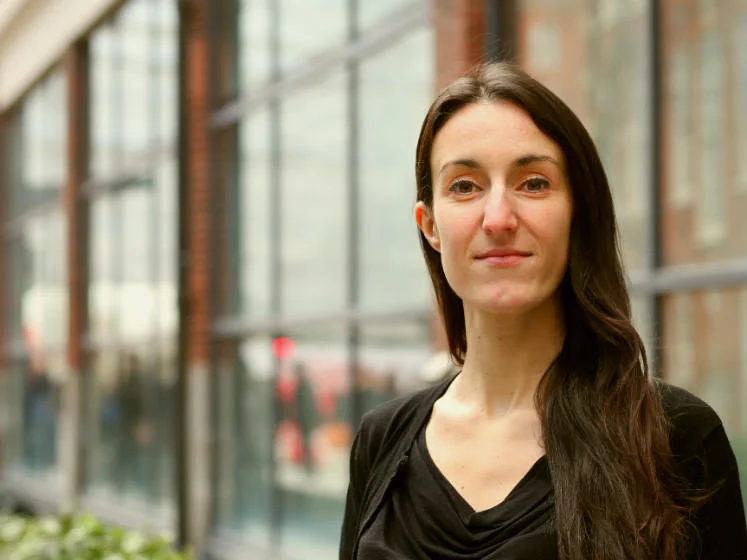Q&A with Marta Lorimer
Investigating identity in the far-right
Marta is a PhD student at the European Institute
LSE is full of interesting people, from gifted students to world class academics.

What are you currently researching?
My research focuses on how the Italian Social Movement and the Front National have spoken about Europe and the European Union since 1979, trying to see how far-right parties understand and assess transnational political projects.
What attracted you to this area of research?
My interest in far right politics dates back to my high school years. However, I only became interested in the links between far-right parties and Europe during my Undergraduate degree when I came across a neo-fascist song on YouTube, while researching for a paper. What struck me most about the song was that it was imbued in a pan-European nationalism that I found very puzzling, so I decided to research this further.
How will your research improve or have a wider impact on society?
My research deals with how certain central concepts such as sovereignty, autonomy and identity are understood by parties and how the EU affects them. As these issues are currently being debated in the mainstream, I hope my thesis can contribute a better idea of what they mean to far-right parties and why they might be important to them.
Far-right parties have become such a growing concern in most European countries that anything that can help us understand them, their positions and their voters better is going to feed into a bigger debate on what their role and effect on politics is.
What do you hope to do career-wise, long term?
I was told not to do a PhD in the social sciences unless I wanted to become an academic – and I think that was very good advice. I would like to stay in academia, though it's a difficult job market so I do not exclude looking for opportunities elsewhere.
What are your top three tips to prospective students on the most effective way to approach research and keep stress levels down?
My first tip is: before you embark on a PhD, make sure it is the right thing for you. A PhD takes dedication, endurance and resilience, so don’t do it unless you are really sure that you are ready to commit three to four years of your life to a single project.
Secondly, make sure you love your topic – or that you are so interested in it that you cannot imagine yourself working on anything else.
Finally, if you do start a PhD, remember there is more to life. Don’t isolate yourself, hang out with your friends and find time to do something non-PhD related that allows you to switch off (sports, volunteering, music, etc.)
What resources are available at LSE to help young researchers?
There are several resources, both at departmental and at university level, but I think the one that really makes a difference is the PhD academy as a go-to place for anything from tea, coffee, cookies, and company, to advice on forms, methodological support and career plans.
What do you enjoy most about studying at LSE?
First of all, there’s London. It’s a city that is alive, bustling, frustrating at times but also incredibly satisfying on its good days.
Second, LSE is full of interesting people, from gifted students to world class academics.
Finally, the university’s public events are really engaging - although attending all of them is probably a full-time job that cannot be reconciled with being a responsible PhD student.
This student has now graduated.